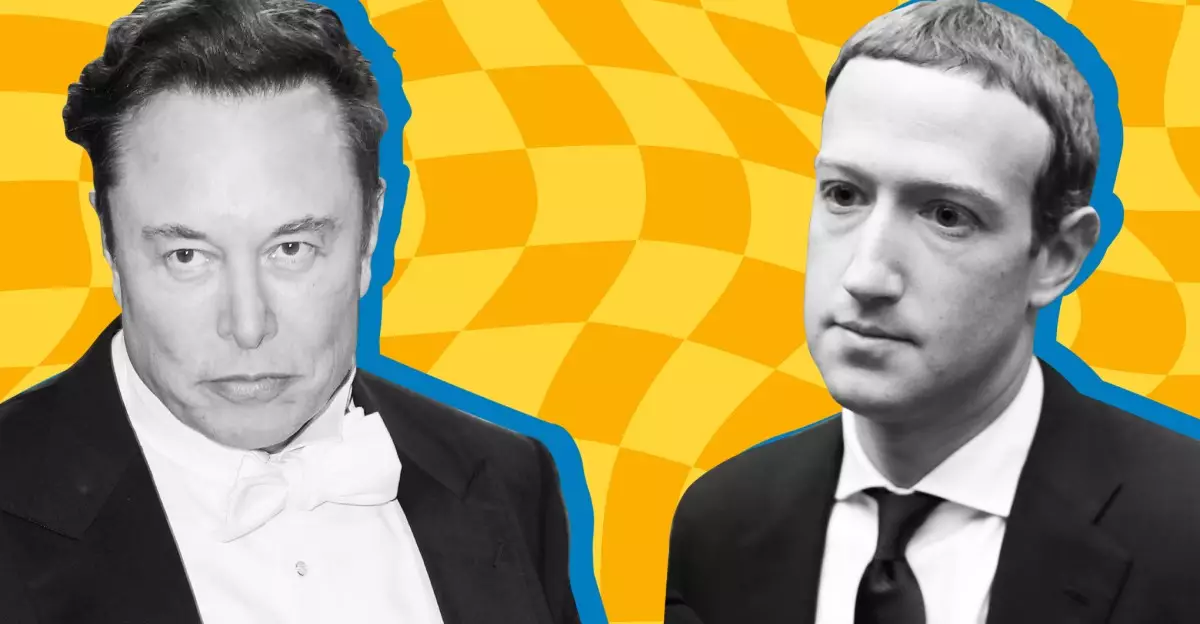In a quirky twist, urban infrastructure has collided with artificial intelligence in an unprecedented way. Recently, crosswalk buttons in several Californian cities have been hacked to emit the AI-generated voices of tech moguls Elon Musk and Mark Zuckerberg, poking fun at their public personas and the societal implications of their innovations. Such antics raise a compelling dialogue about the intersections of technology, satire, and public safety, ultimately casting a spotlight on the need for robust measures to protect our increasingly digitized environments. The latest viral snippets of Elon proposing friendships while humorously veering into darker personal reflections and Zuckerberg touting the subtle art of undermining democracy have, perhaps inadvertently, prompted a deeper examination of the ethical responsibilities of tech leaders in such a rapidly changing landscape.
Humor, Satire, and the AI Phenomenon
The audacity of humor found in these viral voice clips showcases a unique aspect of contemporary discourse about technology’s influence on society. With Musk ironically commenting on his own isolation and longing for connection, and Zuckerberg seemingly reveling in critiquing his own corporate legacy, these AI-generated messages reflect a public that is both critical of and entertained by its tech overlords. The essence of satire is to challenge authority and traditional narratives, and this quirky phenomenon brings to light the often-absurd realities of Silicon Valley’s elite. By delegating their voices to the ether of urban life, they unwittingly invite both ridicule and introspection. The dissonance between their digital representations and real-world complexities illustrates how easily perceptions can shift, especially in the hands of a skilled comedian or a perceptive hacker.
Public Safety or Public Spectacle?
However, amid the laughter, one must ponder the implications of such a digital hijacking. While the jest is undeniably amusing, the safety of pedestrian infrastructure should never be compromised. Crosswalk signals serve an essential purpose—guiding those with visual impairments safely through busy intersections. If the malicious intent behind the hack interferes with these life-saving functions, the consequences could be dire. The reports suggest that the humorous AI voices were supplemental, rather than replacements for necessary safety announcements, but one can’t help but wonder: how long before something more nefarious transpires? The duality of humor and threat in this context makes it a significant topic for municipal authorities to address. Ensuring the integrity of public systems is critical, even as we might chuckle at the unexpected antics of our tech giants.
Democratization of Digital Mockery
The delightful complexity of this situation also hints at a new age of digital democratization. For years, the voices of business leaders have been echoed in sanitized, polished formats—carefully curated statements that rarely allow room for the kind of raw, unvarnished expression that the AI crosswalks have unleashed. In a world where tech leaders are often faceless entities making major decisions that impact millions, these lighthearted impersonations allow the public to reclaim some agency. They expose vulnerabilities, humanizing figures typically viewed in a heroic or villainous light. In this realm of digital satire, everyone is both a spectator and a participant, blurring the lines between creator and consumer in ways that could redefine how we interact with corporate culture.
The Role of AI in Shaping Narratives
As we digest the implications of such technological hijinks, it’s critical to remember that AI’s role extends beyond mere imitation—it actively shapes narratives. By employing voices of influential figures to convey absurdity, these hacked messages also reflect a larger truth about the transformative power of AI. Whether we view AI as a tool for advancing societal good or as a potential harbinger of chaos often lies in the manner of its application and the intentions behind it. While the new functionality of AI to mimic human voices leads to entertainment, it also opens a Pandora’s box of ethical complications that society must grapple with urgently. The humorous personas crafted in these incidents serve as both a warning and a reminder that the ramifications of technology go well beyond laughs; they intersect with security, manipulation, and the very fabric of our democratic ideals.
It’s a fascinating moment in culture when the technology we rely on not only reshapes our interactions but is also taken to task by those very technologies in ways we might not have foreseen. The laughter brought forth by these AI antics serves as a potent reminder of the need for continued vigilance in both innovation and the critique of it.

